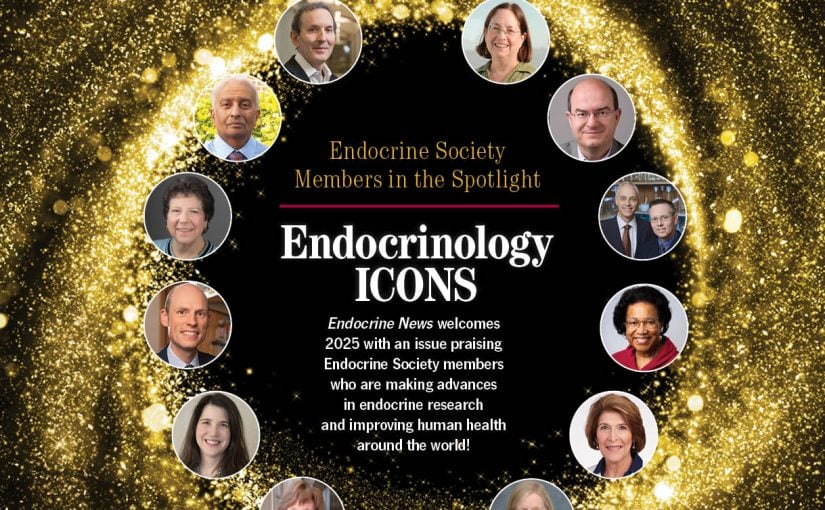When reading the health news of the day, have you ever found yourself just shaking your head? How could they have gotten it so wrong? Unfortunately, some well-intentioned reporters once in a while put out articles that are inaccurate or incomplete, and this can certainly be confusing to the public. If these writers had the opportunity to connect with the Society’s expert members, their readers would be better informed. That’s why every two years the Society hosts a Hormones and Health Science Writers Conference, exclusively for reporters.
On December 11th, I joined a group of Society member experts to speak with journalists in New York City. We addressed some controversial and often misunderstood topics including transgender health, the microbiome, diabetes and aging, and why BPA-free may not always mean problem-free.
It’s important to clear up misconceptions about hormones and the endocrine system, and to educate reporters on the fundamentals of endocrinology. And as we do so, we’ll build strong connections with journalists. Attendees of previous conferences continue to contact us as they greatly value the expertise that our membership provides corroborating that the Endocrine Society is the authoritative go-to source for hormone-related issues.
Making Connections
In 2013, 20 reporters attended the Science Writers Conference, representing outlets such as The New York Times, Shape Magazine, Everyday Health, Medscape, and MedPage Today. We had a similar strong turnout this year.
In recent years many media outlets have reduced their staff and reporters are expected to get more done despite having the same number of hours in the day. This poses the significant challenge of creating an agenda of presentations that encourages reporters to make time in their very busy schedules to spend a half-day listening to a series of presentations. The topics need to be compelling and the presenters need to be able to explain these complex issues in a way that reporters and their readers are sure to understand.
Compelling Topics
Past conferences featured presentations on whether or not male menopause is a real condition, the benefits and risks of menopausal hormone therapy, and the potential impact of endocrine-disrupting chemicals on public health.
This year’s event included five presentations on topics currently gathering a significant amount of media coverage:
• Elena Barengolts, MD, of the University of Illinois gave a presentation entitled the “Quest for a Healthy Microbiome” that highlighted how microbiota plays an important role in the development of obesity and diabetes.
• Robert Lash, MD, of the University of Michigan Health System talked to reporters about how the incidence of diabetes increases as we age but drug choices become more limited as we get older and the medications we’re left with may have significant side effects. He talked through the complexities of treating diabetes in the aging population.
• Deborah Kurrasch, PhD, of the University of Calgary spoke to reporters about the danger of fixating on the removal of BPA from consumer goods which could allow other endocrine-disrupting chemicals to be used as replacements. She emphasized that “safe” compounds are those that don’t interfere with any hormone signaling.
• Joshua Safer, MD, of the Boston University School of Medicine gave attending reporters a presentation on transgender health, which highlighed the safety of hormone therapy and the need for more research.
If you’d like to see these presentations or those from previous Science Writers Conferences, please visit: http://www.endocrine.org/news-room/science-writers-conference. It is my hope that as we educate reporters, their readers will better understand how important hormones are to overall health. If you have any questions or comments, please contact me at [email protected].

